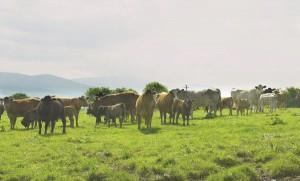Results published by analysts RaboResearch in their Rabobank Beef Quarterly Q2 2017 report have revealed that the global beef complex has been negatively impacted by a series of market disruptions throughout the second quarter.

A combination of political upheaval in Brazil, a new trade agreement between the US and China and proposed bans on slaughter in India have all involved the major bovine-exporting nations of the world, creating the potential of material shifts in global trade.
In Brazil, the meat sector has been rocked by two political events during the first half of 2017, including investigations into alleged irregularities in meat inspections in March, while in May, the country’s largest beef processor, JBS, was caught up in a political scandal.
As a result, Brazilian beef exports dropped by around 10% year-on-year in the first five months of 2017, while a recent drop in cattle prices may lead to a future reduction in production.
In India, one of the largest global bovine exporters, the country’s federal Government released in early June a directive that would ban the sale of cattle, including buffalo, in notified livestock markets for non-agricultural purposes, which would include the sale of cattle for slaughter.
The move could, according to Rabobank, have an “enormous global impact”, as there is no further information as to how many states would conform to the federal Government direct or when.
Rabobank also noted that its Seven-Nation Beef Index remained stable up to May, reaching the 165-point mark for the past 12 months.
This story was originally published on a previous version of the Meat Management website and so there may be some missing images and formatting issues.












